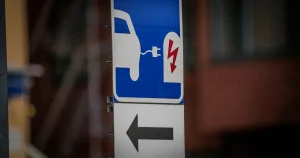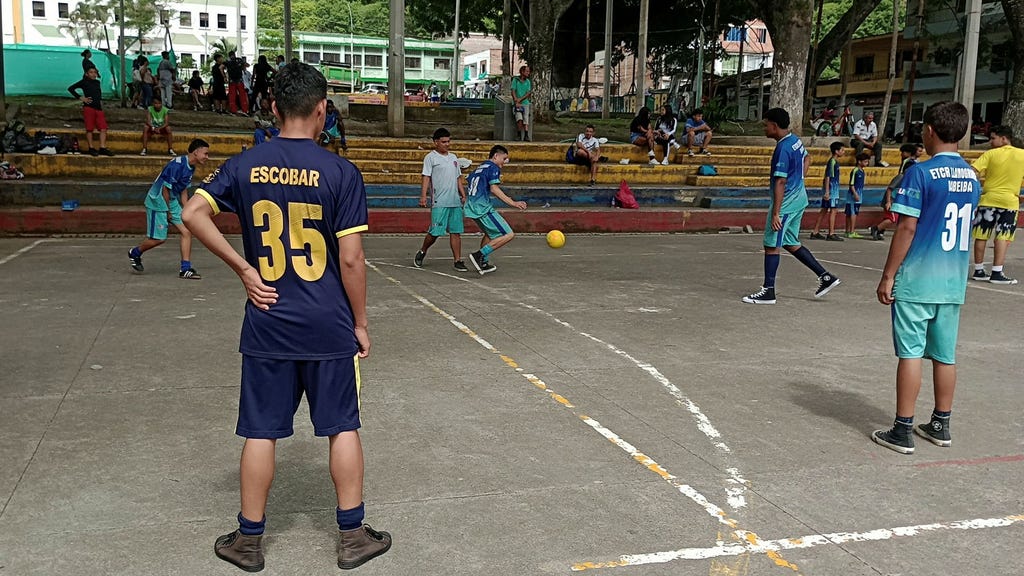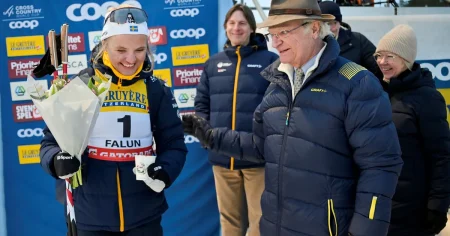The Swedish aid organization, Ankarstiftelsen, is reigniting its impactful football project in Colombia, aimed at diverting children and youth from the pervasive grip of crime. With a focus on prevention, the project utilizes football as a powerful tool for engagement, offering regular training sessions coupled with psychosocial workshops. These workshops provide a safe space for children to discuss their thoughts, situations, mental well-being, and any challenges they face at home or school, fostering a trusting relationship between the children and the project’s staff. This holistic approach, combining physical activity with mental and emotional support, forms the foundation of Ankarstiftelsen’s strategy to empower vulnerable youth and guide them toward a brighter future, away from the dangers of gang involvement.
Having previously implemented similar successful initiatives, Ankarstiftelsen was forced to pause its operations due to financial constraints. However, thanks to a significant grant from the UEFA Foundation for Children, the organization is now able to relaunch its critical work. The substantial funding boost, a testament to Ankarstiftelsen’s proven effectiveness, was awarded amidst fierce competition from numerous larger organizations globally. This recognition underscores the value and impact of the organization’s unique approach in leveraging the universal appeal of football to address crucial social issues and support at-risk children.
The project will be implemented in and around Medellín, a city grappling with the challenges of gang violence and widespread crime. Football’s immense popularity in Colombia makes it an ideal platform for reaching young people. The existing infrastructure of football fields within the targeted communities further strengthens the project’s feasibility and potential for sustainable impact. The organization recognizes that engaging youth in constructive activities, particularly those that foster teamwork, discipline, and personal development, is crucial to counteracting the allure of criminal gangs.
Over the years, Ankarstiftelsen has faced significant challenges operating in such a volatile environment. Gang leaders have perceived the organization’s work as a threat to their recruitment efforts, even resorting to violence against project staff. The organization has navigated tense situations, including direct confrontations with gang leaders, demonstrating its unwavering commitment to the children it serves. A particularly striking anecdote recounts a tense negotiation where a gang leader, after initially displaying aggression, ultimately handed over his weapon to Ankarstiftelsen’s founder as a symbolic gesture of peace and a commitment to not interfere with the project’s work.
With a renewed financial commitment, the project is set to commence in January 2025, spanning two years and aiming to reach 320 children. A crucial aspect of the project is its inclusivity, with a target of 30% female participation. Ankarstiftelsen recognizes the specific vulnerabilities faced by girls in these communities, including exploitation and early pregnancies, and seeks to empower them through sports and psychosocial support to improve their lives and break the cycle of poverty. The organization is dedicated to equipping these young people, both boys and girls, with the tools they need to navigate the challenges of their environment and build a more hopeful future.
The project’s carefully structured design includes five weekly football training sessions and four psychosocial workshops, both in group and individual settings. This combination of physical activity and focused personal development provides a comprehensive support system for the children. The UEFA Foundation for Children’s grant of approximately one million Swedish kronor, along with Ankarstiftelsen’s own contribution of 250,000 kronor, ensures the financial sustainability of the project. The organization aims to conduct 400 training sessions and 320 psychosocial workshops over the project’s two-year duration. The ultimate objective is not only to keep 90% of the participants away from crime but also to foster personal growth, build life skills, and create pathways out of poverty. This multi-faceted approach addresses the complex challenges faced by these young people and offers them a chance for a brighter, more promising future.














